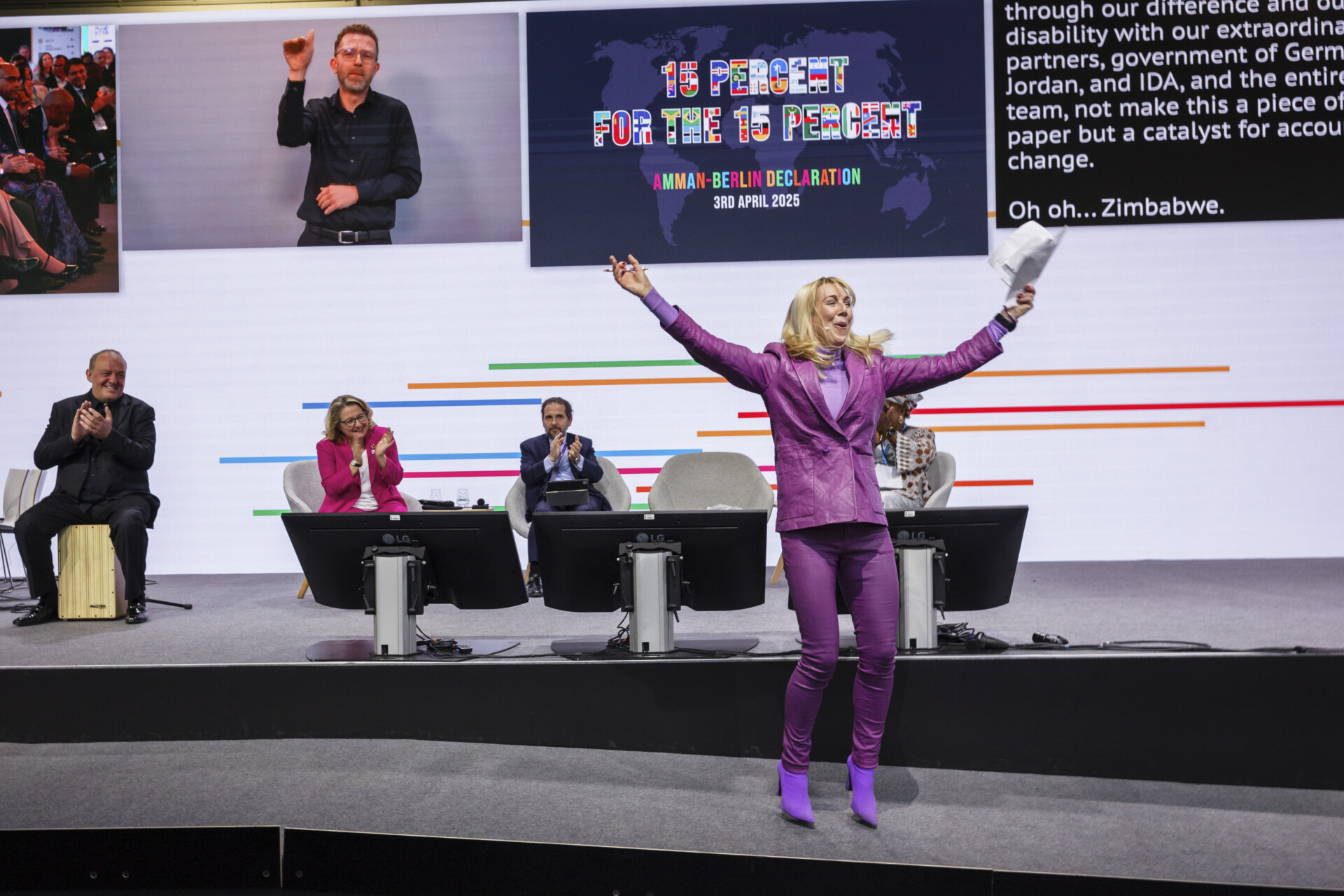The Global Disability Summit (GDS) is the world’s leading platform for driving forward the rights and inclusion of persons with disabilities. Launched in 2018, the Summit brings together governments, organizations of persons with disabilities (OPDs), civil society, the private sector, international organizations, and donors to accelerate progress on disability-inclusive development and humanitarian action.
The GDS is grounded in the United Nations Convention on the Rights of Persons with Disabilities (CRPD) and supports the implementation of the 2030 Agenda for Sustainable Development. It serves as a recurring mechanism to promote international cooperation, mobilise commitments, and strengthen accountability for disability inclusion across all sectors.
Global Disability Summit
2025
2nd – 3rd April, 2025 / Berlin
Co-hosted in 2025 by Germany, Jordan, and the International Disability Alliance (IDA), the third Summit brought together over 4,700 participants from 160+ countries in Berlin. With a strong focus on national ownership and inclusive international cooperation, GDS 2025 concluded with the adoption of the Amman-Berlin Declaration and over 800 new commitments by Governments, private sector and development partners to accelerate disability inclusion across sectors.
Access the photos from the GDS 2025 and Civil Society Forum 2025 here.
Watch the Day 1 (main sessions) recording here.
Watch the Day 2 (main sessions) recording here.
Watch the Civil Society Forum recording here.
Attended GDS 2025? Share your experience with us!
Take our short, accessible survey to help us do better, improve the Summit experience, and make future events even more impactful.
Click here for the survey.
About the GDS
GLOBAL DISABILITY SUMMIT
The Global Disability Summit aims to galvanize global efforts to realize disability inclusion around the world. It is a mechanism bringing together a wide variety of high-level stakeholders, engaging and discussing the progress in disability inclusion: governments, multilateral agencies, the private sector, academia and civil society organizations, organizations of persons with disabilities, and foundations.

Amman-Berlin
Declaration
The Amman-Berlin Declaration calls for a 15% for 15% target with endorsing countries and organizations triving to ensure that at least 15 percent of international development programs being implemented at the country level pursue disability inclusion as an objective.
90 governments and organizations endorsed the declaration already during the time of the summit. The full list of endorsers and supporters is now available through the following link.
This website was made possible with funds from the German Federal Ministry of Economic Cooperation and Development (BMZ)
